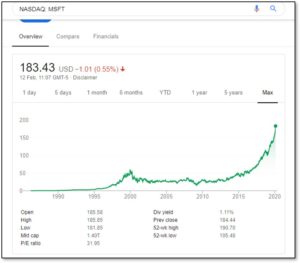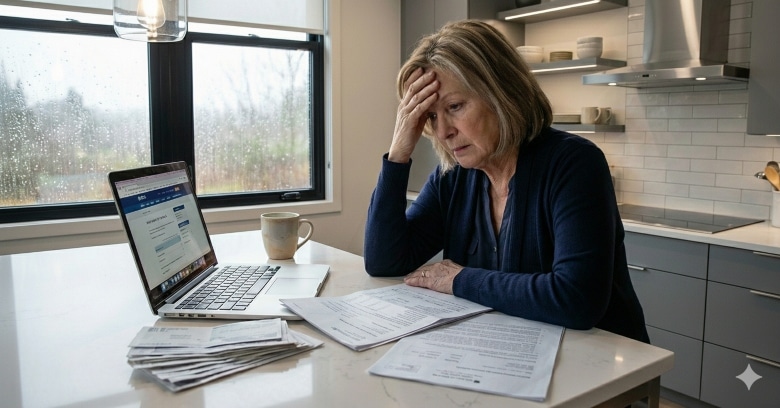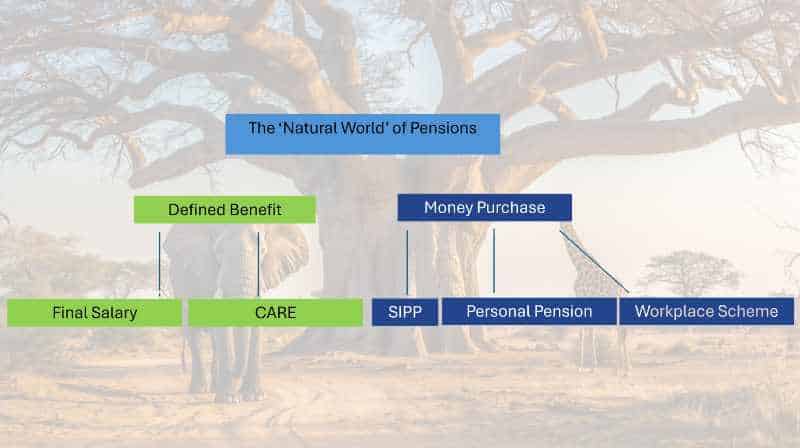
Things are scary when we don’t understand them.
Dorothy and the citizens of the Emerald City were scared of the Wizard of Oz until Toto pulled back the curtain to reveal the Wizard for what he really was.
In the early days of film, cinemagoers, naive to the workings of the projector and film would be terrified of objects like a train moving towards them; they didn’t appreciate the fact that it wouldn’t come out of the screen.
Jaws was a scary film when, as a young boy, I didn’t understand the mechanical nature of the world’s most feared Great White. Now, we can laugh at the rudimental nature of the special effects compared to today’s CGI.
Before my son knew how to use a remote control he would run out of the room during the scary part of the cartoon he watched because he didn’t understand the difference between a cartoon world and reality.
Many consumers prefer the perceived safety of savings and property to the world’s stock markets because, to the uninformed, they are scary places. We read the news headlines, watch films like the Big Short, recall events such as Black Monday, the collapse of Lehman Brothers and the current coronavirus outbreak and our only experience of stock markets is when bad stuff happens.
Ergo, stock markets are scary and to be avoided.
But when you pull back the curtain and understand stock markets for what they really are, you can begin to appreciate they are not so scary places.
So let me start to pull back the curtain and help you reframe how you see the stock markets:
- The world’s stock markets are made up of the biggest companies in the world. The companies in the world that are household names, many of which we buy the products and services on a daily basis. Others, we might not engage with directly but provide essential structures to keep the world economy moving.
- Individual companies may go bust almost overnight, a la Lehman Brothers, but the world would have to be in a very, very bad place for even a selection of the largest and greatest companies of the world to do so, let alone all of them.
- A company’s share price reflects the aggregate perceived value of it by traders and investors the world over. The theory of the wisdom of crowds means that it should be a fair price. When something happens to change that perception, the share price changes, positively or negatively.
- Often, in the midst of a bull run or a bear market, the perceived value of a company or market becomes disjointed from the reality; speculators, led by the actions of everyone else overreact positively or negatively.
- At a market peak, there will be a trigger (or triggers) that lead investors en mass to sell their shares to avoid further losses.
Fear begets fear, hype begets hype,
and so the perceived value of a company relative to the reality is flipped to the negative. And the stock market crashes.
- However, the likes of Amazon, Apple, Microsoft, and Google don’t become bad companies overnight. The ‘markets’ are just throwing the baby out with the bathwater.
The chart below* is the share price of Microsoft over time. Note how the Credit Crunch (2007-09) was merely a blip compared to the recent surge in the price.

In every other walk of life, a fall in prices is a good thing. We call them sales and go mad for them. But, when investing, we panic and run for the hills. Go figure!
So, yes, to the uninitiated and naive, this is where stock markets can be scary and the news reports will whip up the fear even more by predicting the end of capitalism and announce how billions have been wiped off the value of our pensions.
But, the informed do nothing. They stay firm or, better still, see a sale and go shopping. Because, stock markets don’t have permanent losses, only investors do. Stock markets have temporary dips before they recover and continue their ever-upward trend.
Stock market crashes are a natural cleansing mechanism to make sure they reflect true and fair valuations. Economists and finance experts use the term ‘reversion to the mean’ to explain it. This simply means that the returns of a share price (or a stock market as a whole) might rise or fall substantially, but sooner or later, they return (revert) to the average (mean). Think of it as the string of a guitar; when plucked it will oscillate but come to rest at its normal position.
If you believe in capitalism and the ability of entrepreneurs to meet and create demand for their products and services, then you should be confident in the stock markets as a place to fuel and benefit from this natural evolution.
The informed also understand that there is more to risk than stock market crashes. Most of all they know that if they are planning to live their ideal lifestyle for many decades, the greatest risk to their wealth is not periodic stock market crashes but the slow and steady creep of inflation that destroys the value of savings and the purchasing power of money.
Hopefully, by reading this I have helped to lift the curtain on your understanding of stock markets and made them a little less scary. If you want to talk more about investing, get in touch.
*Source: Google Finance
Photo by Ninety Eyes on Unsplash






